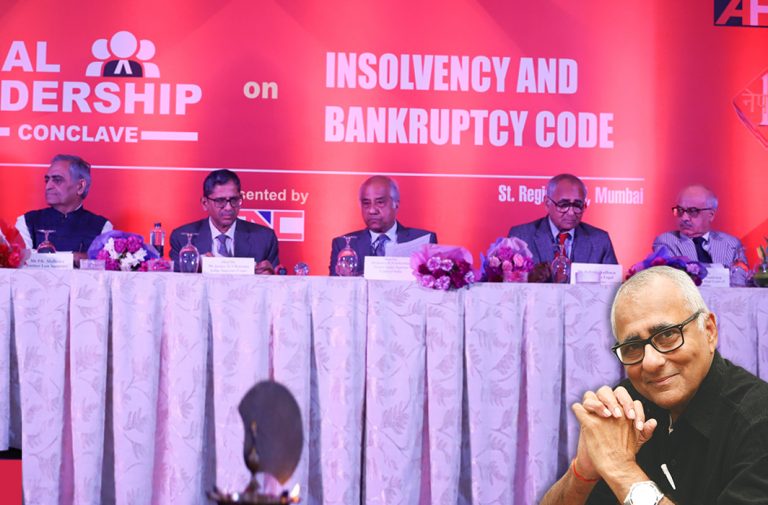
Above: (L to R) Former law secretary P K Malhotra, Supreme Court judge Justice N V Ramana, Former Supreme Court judge Justice B N Srikrishna, Editor-in- Chief of India Legal, Inderjit Badhwar and Chief Justice of Bombay High Court Justice Pradeep Nandrajog in the Legal Leadership Conclave /Photo: Anil Shakya
By Inderjit Badhwar
As the first and only weekly, independent politico-legal journal that covers an entire gamut of legal news and developments in the country, India Legal magazine has constantly endeavoured to promote the spread of legal education. This approach forms the bedrock of all our media initiatives, including the widely acclaimed news channels APN TV and N1 News. Both carry national news as well as in-depth, interactive legal programmes, including a live, daily legal helpline.
India Legal weekly, APN TV and N1 News channels are a part of the ENC Group which takes great pride and responsibility in promoting new ideas, initiatives, and recommendations for the benefit of not only the legal fraternity but also society at large. In continuing with this tradition, we are pleased to inform our readers about the launch of a series of Legal Leadership Conclaves in partnership with the Supreme Court Bar Association and various national law universities and state legal authorities.
While it is common to hear of leadership summits and conclaves which focus on themes like politics, business, technology, arts and culture, it’s rather rare to have a forum exclusively dedicated to the exchange of ideas on law.
The Legal Leadership Conclave is a significant attempt by the ENC Group to fill that void. These conclaves are being held nationwide on a wide range of contemporary legal issues with the participation of sitting judges of the Supreme Court and high courts and several other legal luminaries and thought leaders.
By the time this issue hits the stands, we would have hosted the first of these events on April 27, 2019, at the St Regis Hotel, Mumbai, with the Insolvency and Bankruptcy Code (IBC) as the topic for discussion.
Joining hands with India Legal for this Conclave are the Supreme Court Bar Association (SCBA), the Maharashtra National Law University, Mumbai (MNLU) and the India Legal Research Foundation (ILRF), all leading institutions in their own right. The SCBA, which works tirelessly in upholding the professionalism and integrity of Supreme Court lawyers, is an important pillar of our legal system.
Our second partner, MNLU, is one of the youngest national law universities and is already taking great strides by attracting some of the brightest minds in the country. Our third partner, the ENC Group-promoted ILRF, is a non-profit organisation which is committed to bringing justice to those who deserve it but cannot afford it.
At the time we were planning the Mumbai conclave a few weeks back, the IBC emerged as the topic for discussion almost unanimously, the reasons for which are not hard to fathom. The IBC is a major economic reform initiated in the country in recent times to provide for a time-bound insolvency resolution process. Since it was enacted in 2016, as many as 12,000 insolvency cases have been filed under it and around Rs 1 lakh crore has been recovered through insolvency proceedings. Before the introduction of the IBC, it took companies about four to five years to dissolve their operations; now the time has dropped drastically to a year.
As with any new legislation, however, the IBC’s smooth implementation has been riddled with many issues that had not been thought of at the time of drafting the legislation. Some of these issues have been addressed by way of legislative amendments and court orders. This conclave proffered another opportunity for various stakeholders to deliberate on several aspects such as practical issues in the insolvency resolution process and recent developments in the IBC as well as a prognosis of what is to come.

